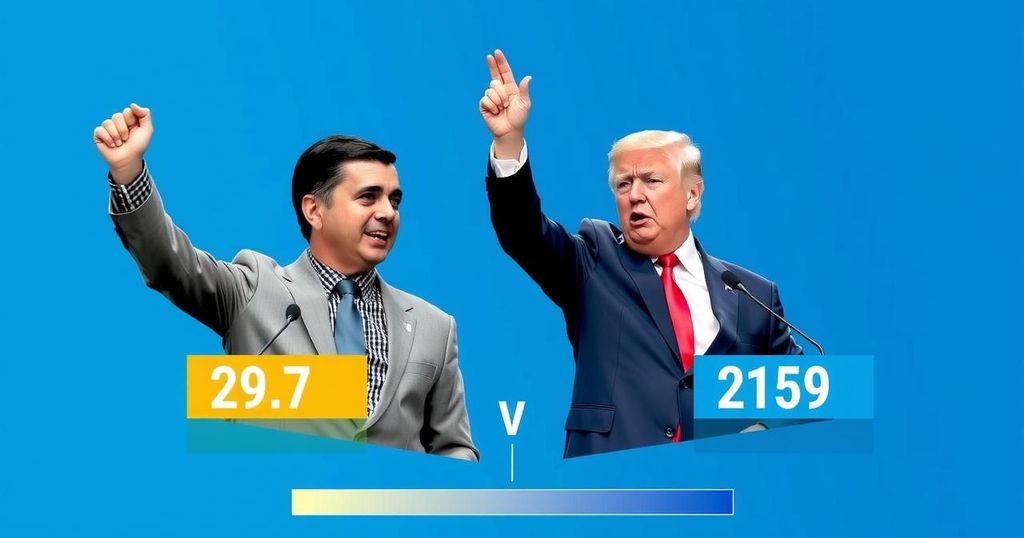Uruguayans are poised to return to polls for a presidential runoff between Álvaro Delgado of the National Party and Yamandú Orsi of the Broad Front. After a divided initial election, candidates are addressing key issues such as crime and economic policy. With significant voter indecision and close polling data, the outcome will shape Uruguay’s political landscape going forward.
Uruguay is set for an intense presidential runoff on Sunday, as voters will return to the polls to select their next leader amidst a remarkably close contest. The current governing party’s candidate, Álvaro Delgado, and opposition candidate Yamandú Orsi from the Broad Front are vying for control after neither secured a clear majority in the initial round of voting last month. Orsi’s coalition, which governed until 2019, garnered 44% of the votes, while Delgado’s National Party received 27%. However, support from other conservative parties provides Delgado with a competitive advantage going into this closely contested election.
Campaign dynamics are further complicated by an evenly divided Congress and a significant portion of undecided voters. Analysts note that the electoral landscape has been characterized by moderate voter engagement on key issues, such as taxes and social expenditure, without the populist fervor observed in other nations. “The question of whether Frente Amplio raises taxes is not an existential question,” remarked Nicolás Saldías, a senior analyst at the Economist Intelligence Unit, highlighting a stable political atmosphere in Uruguay.
Both candidates face public concern regarding an uptick in violent crime, a new challenge for a nation known for its stability. Delgado, 55, aims to continue the current president’s policies and boasts a strong endorsement for the existing administration. He promotes a fiscally conservative agenda and a potential trade agreement with China, even amidst regional trade alliance tensions. Conversely, Orsi, 57, positioning himself as a representative of the working class and successor to former President José Mujica, advocates for tax incentives and reforms aimed at enhancing the agricultural sector. His approach seeks to balance social reforms with fiscal prudence, particularly after a failed plebiscite on pension enhancements.
This election cycle is marked by its unusual normalcy, underscoring Uruguay’s robust democratic framework, as noted by Saldías. The outcomes of this runoff will significantly influence the country’s socio-economic trajectory in the coming years, with both candidates presenting contrasting visions for governance and reform.
The political landscape in Uruguay has evolved significantly over recent years, particularly with the shift from an extended left-leaning government to a center-right administration following the 2019 elections. The country had been characterized by progressive reforms, including marijuana legalization and same-sex marriage under the Broad Front’s governance. The looming election reflects a deeper struggle for political identity among the electorate, influenced by economic concerns and public safety issues. With a divided Congress and a notable portion of undecided voters, this runoff marks a critical juncture for Uruguayan politics.
In conclusion, Uruguay’s upcoming presidential runoff reflects a vibrant yet challenging political scenario, with candidates representing distinct ideologies and policies. The proximity of the race signifies heightened voter interests, potentially shifting the country’s governance trajectory. The resolution of this election will not only determine the immediate future of Uruguay’s leadership but also indicate the broader political sentiments of its citizens in light of past experiences and current challenges.
Original Source: abcnews.go.com







